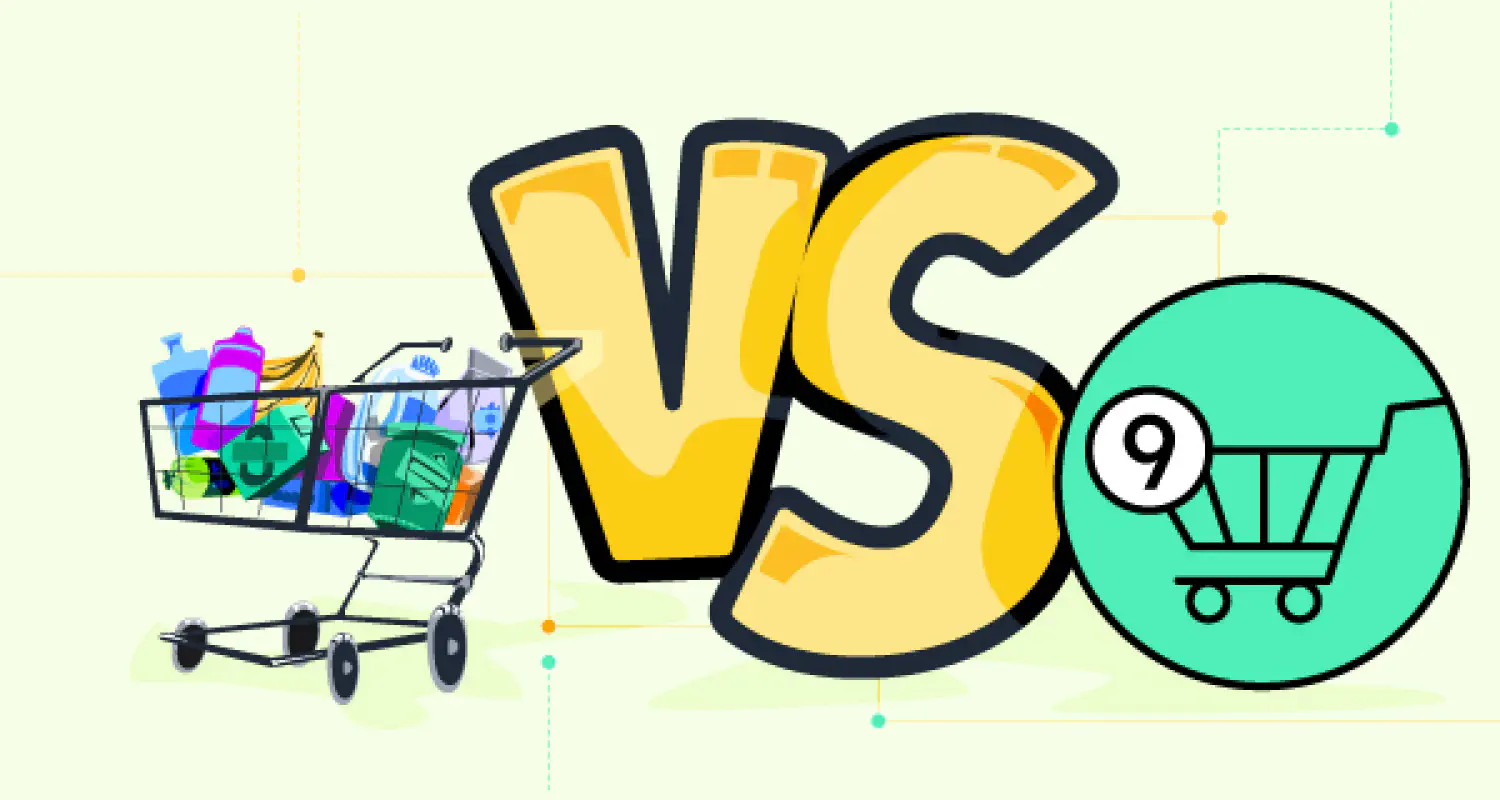Top 7 Sales Management Tools for High-Performing Sales Teams
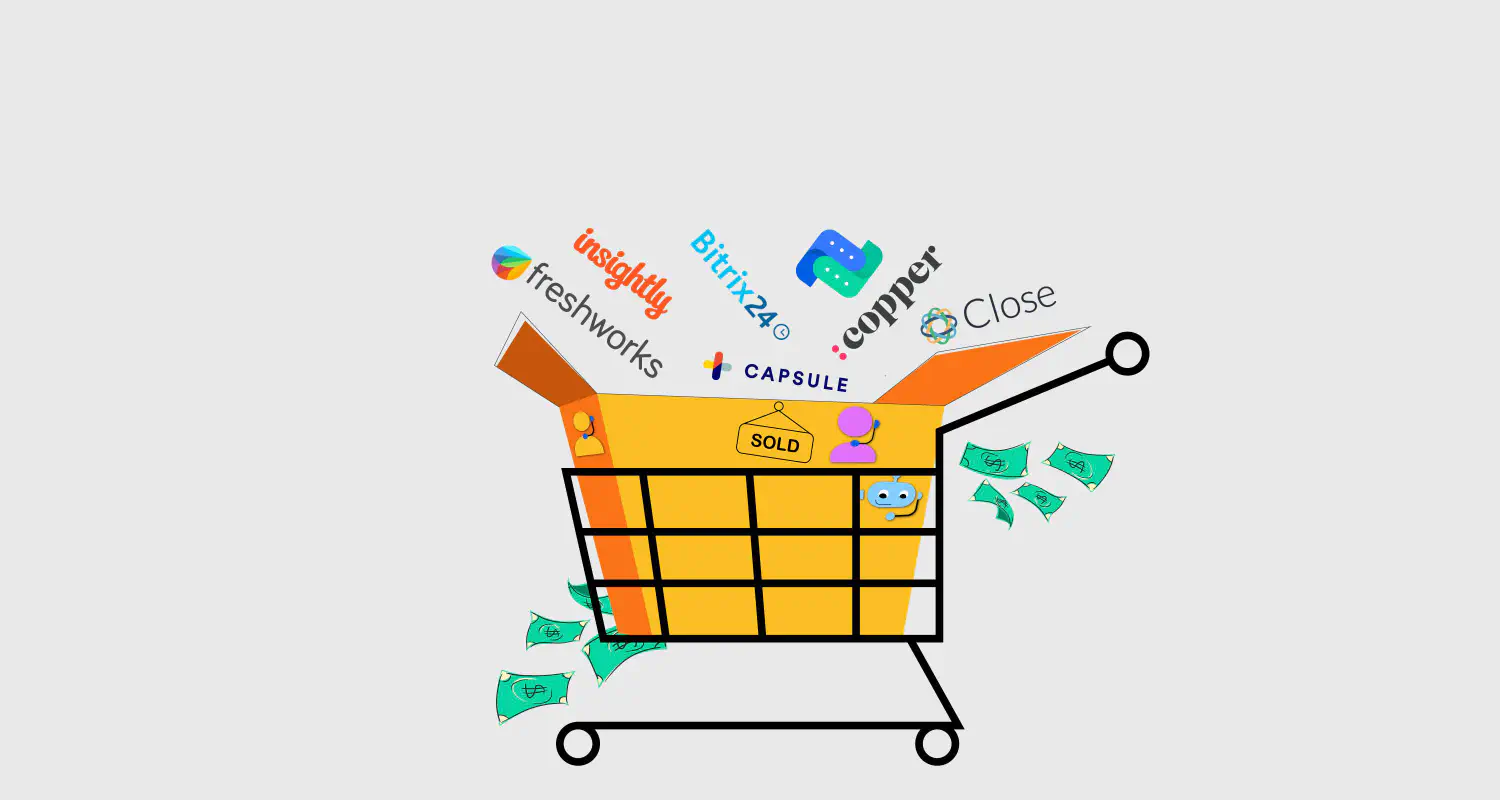
What is the secret behind high-performing sales teams? How do they manage the sales cycle effectively without wasting time or effort? The answer is that they don’t spend time doing redundant day-to-day tasks. Instead, they use sales management tools.
These tools help teams monitor sales progress, track customer interactions, automate repetitive tasks, and more. While the tool works tirelessly, your team can focus on closing deals and bringing in new leads.
To help you choose the best tool for your business, we’ve handpicked and reviewed the top sales management software tools on the market.
What is sales management software?
Sales management software is a tool designed to help sales teams organize, track, and manage sales pipelines and processes.
These tools provide features that help your team manage customer data, automate routine tasks, track leads, and monitor the progress of customer interactions.
On top of that, they help you analyze your team’s overall and individual performance, identify bottlenecks in sales processes, know when to adjust your sales strategy, and set goals for your team.
Sales management tools also help your team connect all the other tools they use daily, such as messaging apps and CRMs.
Combining key tools, including a sales CRM software tool, built-in calling, email automation, and lead management, ensures that everyone—from your individual sales agents to the sales manager—has the tools they need to do their best work.
The 7 best sales management software tools on the market
Here’s our list of the best tools you can use for sales management.
1. Rasayel
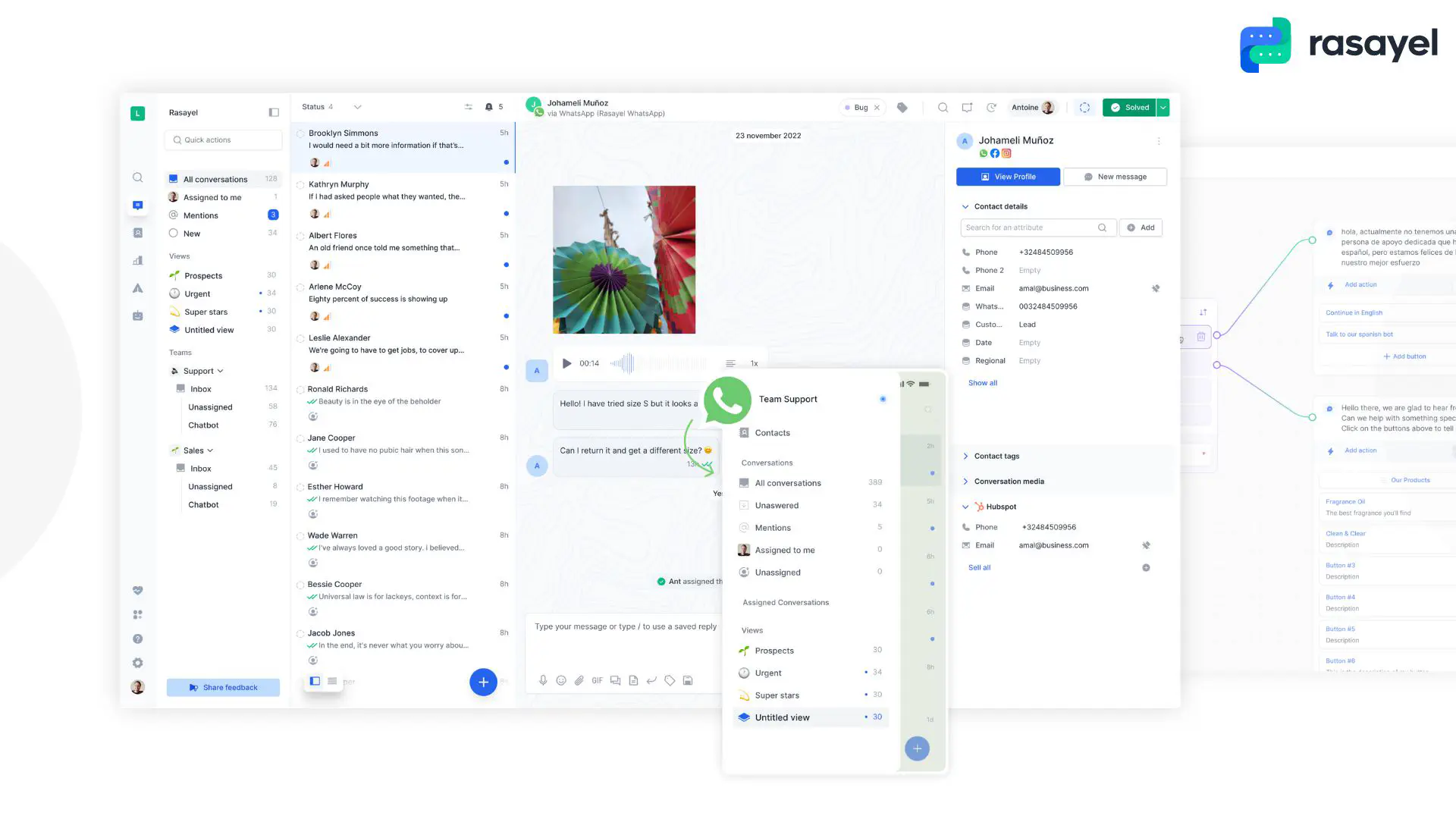
Built for: B2B software sales teams
Built for sales teams that qualify leads and close deals on WhatsApp, Rasayel is your best bet for a smooth sales management experience. It combines a clean interface, smart automation tools, and CRM integrations to help your sales team reach its target without going back and forth between communication and CRM platforms.
Rasayel’s shared team inbox allows your team to contact customers from one organized space. This makes for smoother customer handovers and better team collaboration. Not to mention, it gives you full visibility over the performance of your agents.
In terms of the sales funnel, Rasayel offers no-code chatbots and automation tools to help you qualify leads automatically. The chatbot, for example, can collect information like budget, pain points, and industry needs during an interaction with a customer. This makes it easier for your team to identify high-value opportunities without carrying out repetitive tasks.
However, the part where Rasayel has an edge over many tools on the market is its CRM integrations. They allow you to connect your WhatsApp inbox to your CRM tool, which means your team can have customer data and conversations in one place.
If your team is using WhatsApp for sales and you want to learn more, book a free discovery call with the Rasayel team here.
Pros:
- Easy-to-build no-code chatbots
- CRM integrations
- Automation of repetitive tasks
- Full visibility over team performance
Cons:
- Built for WhatsApp only
2. Copper
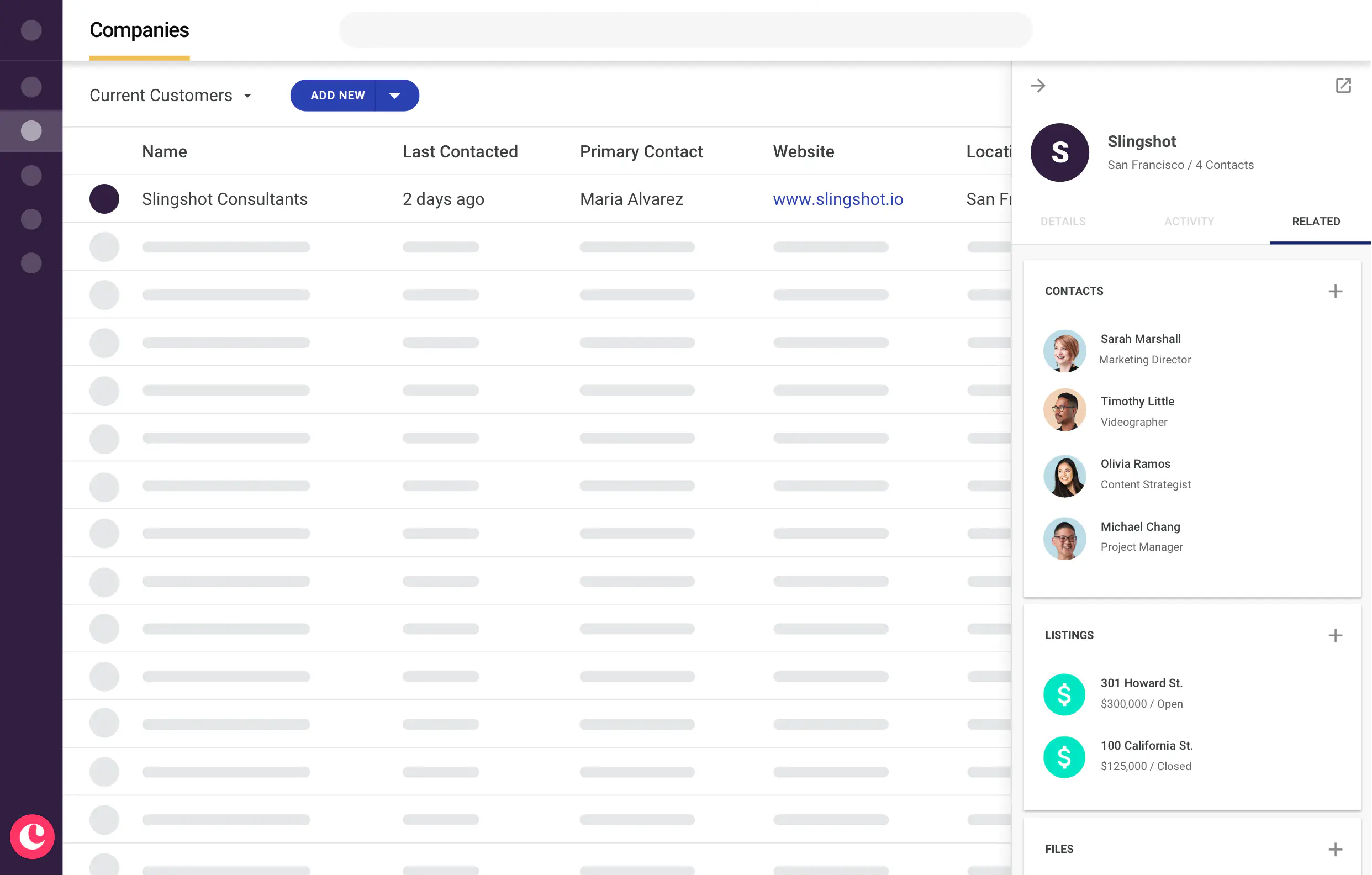
Built for: Teams who use Google Workspace
Copper is a CRM solution that integrates with Google Workspace (Gmail. Calendar, and Drive) to help your sales team manage their contacts without constant shifting between tabs. It helps them add contacts, manage tasks, track conversations, and save work files, all in a single collaborative space.
As a CRM, Copper also gathers customer information in one place, including meetings, emails, and contact details, giving your team better visibility over customer relationships and helping them gain context for interactions. It also has a 14-day free trial so that you get a taste of it before committing.
To keep operations organized, Copper has a pipeline feature that you can use to see where each prospect is in the sales process. It helps your team track leads without dropping any valuable opportunities because of clutter. They can also add custom fields to record special data about each customer.
That said, Copper’s deep integration with Google Workspace is a double-edged sword. While it’s convenient for Google users, it’s very limited for teams who use other email hosting services.
Pros:
- Sales pipeline feature
- Centralized view of customer information
- Free trial with no credit card required
- Tiered pricing plans for businesses of all sizes
Cons:
- Limited outside Google Workspace
3. Close
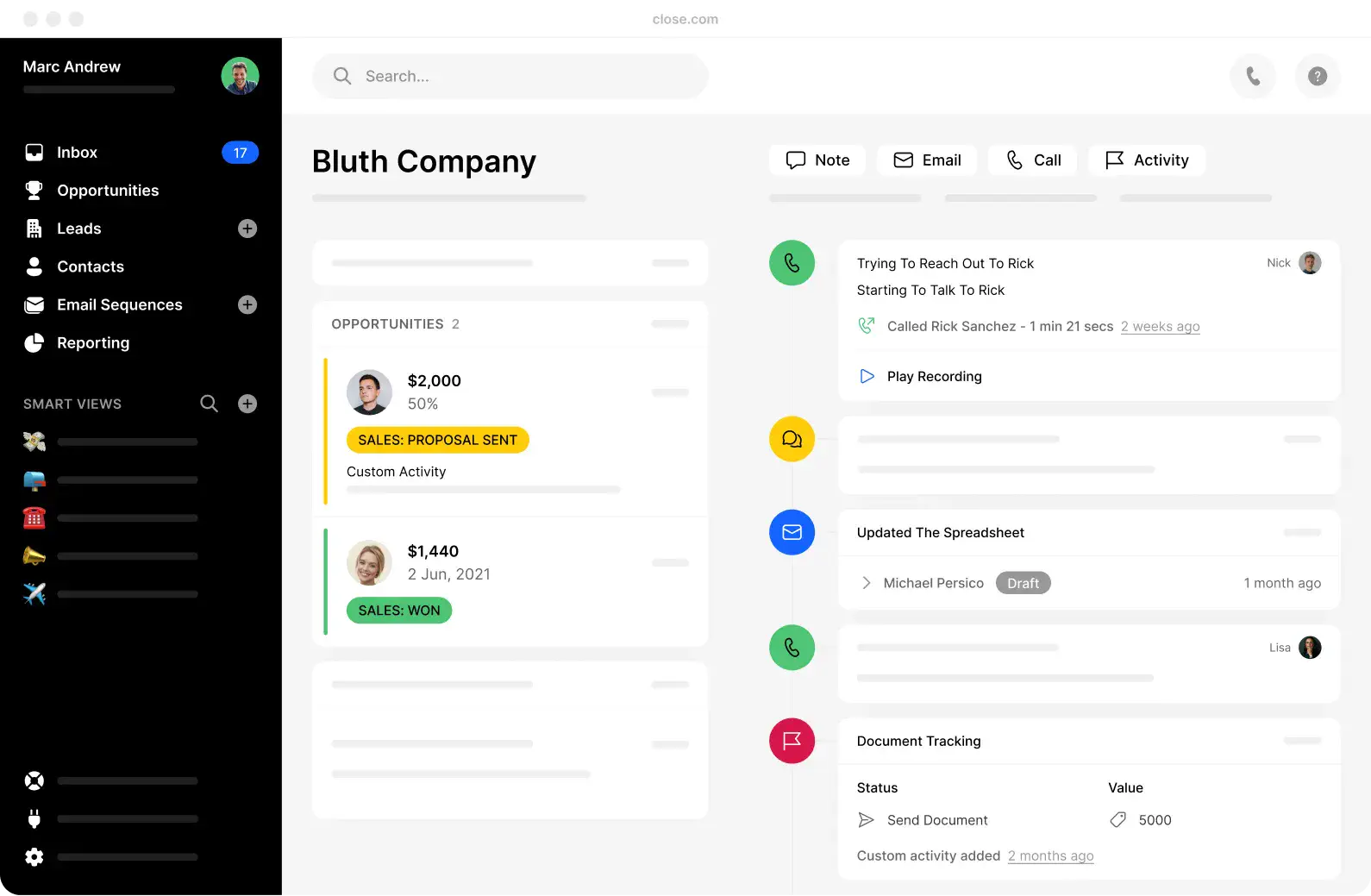
Built for: Small businesses and startups
Designed for small businesses, Close is a CRM tool that offers a user-friendly interface, basic automation features, and multiple integrations, all targeted at sales teams to help improve their workflows.
Close gathers emailing, calling, following up, and sales pipeline management in one space where your team can collaborate. All the tools you need for those actions are either built-in Close or can integrate with it. Your sales team won’t have to shuffle between endless tools to get one task done, saving them time for closing deals.
Close’s automation features are pretty basic and only related to admin work, but they help with repetitive tasks like tracking call logs, emails, and follow-up reminders. And to help you onboard, it offers free data migration and support.
Another one of Close’s highlight features is its ChatGPT plugin, which helps your team filter databases for specific leads in mere seconds. It also generates summaries of customer relationships.
Pros:
- Automation of repetitive tasks
- Built-in tools for calling, emailing, and scheduled follow-ups
- AI plugins for faster lead management
- Free data migration and customer support
Cons:
- Too focused on sales with no marketing tools and limited analytics/KPIs tracking for other teams
4. Capsule
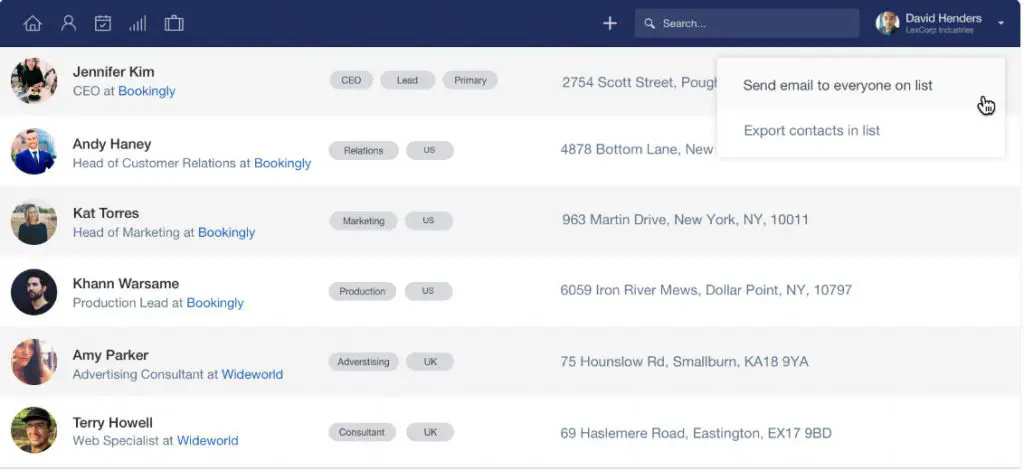
Built for: Small sales teams
Capsule is an adaptable CRM designed for fast-moving, small sales teams that need full visibility and control over contacts and sales opportunities. It provides a bird’s eye view of your customer data, interactions, call history, files, and notes so that your team doesn’t miss a beat while guiding prospects through the sales funnel.
Capsule has a visual sales pipeline with a drag-and-drop interface that helps you monitor every opportunity and track its progress as your team takes care of it. Not only that, but you can also build multiple pipelines to customize workflows for different services or products.
To help you monitor the performance of your team, Capsule provides sales analytics to show you what tasks took the most time and how much those contributed to bringing sales in. It also has tools for email marketing, collaboration features, and an AI content assistant that can automatically respond to emails.
That said, one notable drawback of Capsule is the lack of live support. The only way to get support is to send an email or tweet your question on X, which isn’t very convenient.
Pros:
- Multiple sales pipelines view
- Detailed sales analytics
- Free trial available
- AI content assistant
Cons:
- No live support channels
5. Freshsales by Freshworks
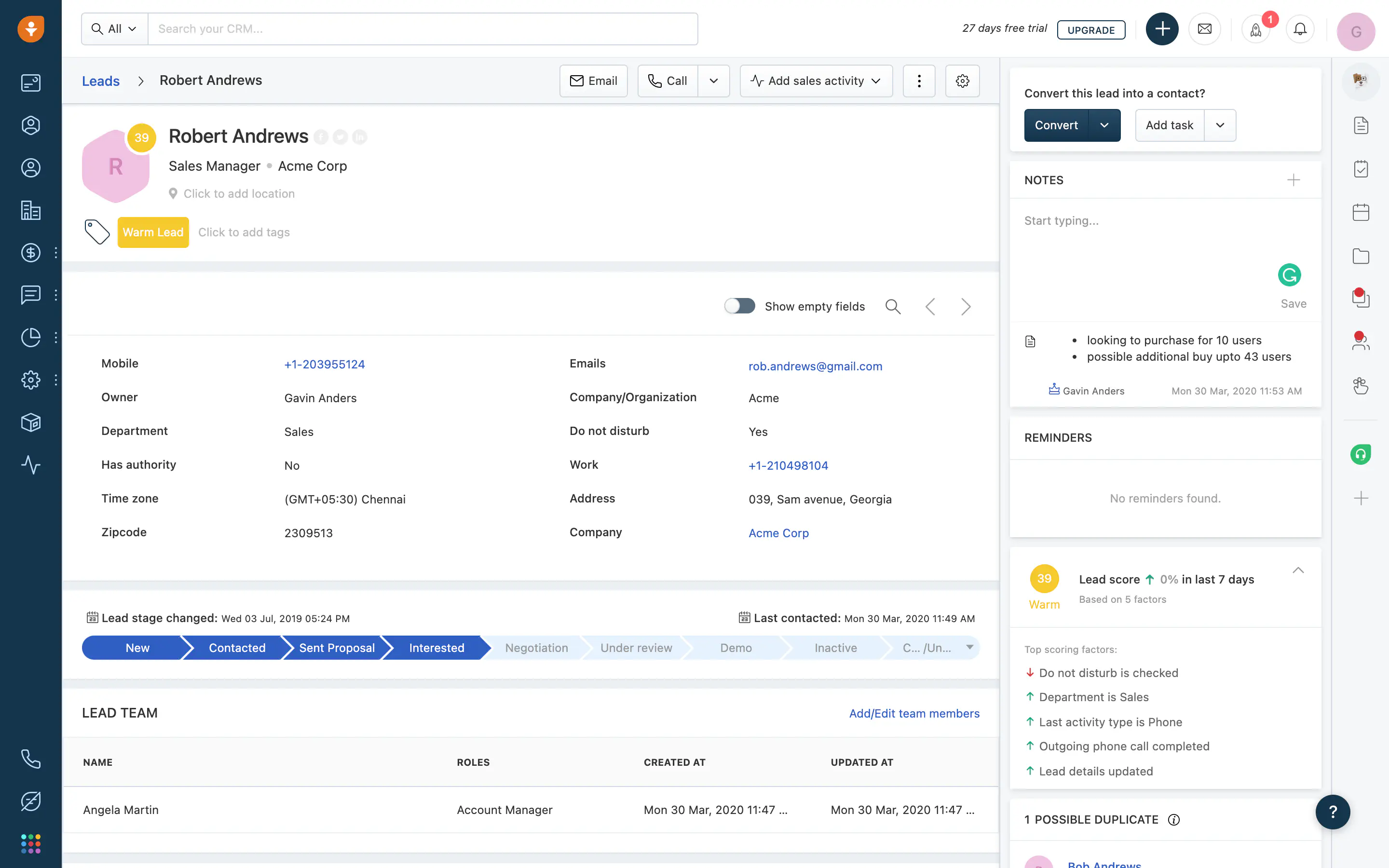
Built for: Medium to large sales teams
Freshsales is an AI-powered CRM tool built specifically for sales by Freshworks. It combines AI capabilities, an organized view, and automated repetitive tasks to help your sales team save time on admin tasks and focus on closing deals.
The CRM tool has an AI assistant called Freddy AI that can identify high-value opportunities, recommend them to your team, and provide insights on the best way to go with these prospects. It also writes emails and gives leads scores based on their engagement to help your team decide on who to drop and who to keep.
As for automation, Freshsales automates data entry, email follow-ups, and scheduled messages. It also keeps sales and marketing teams aligned by keeping all customer data and previous communications in one place.
While Freshsales helps your sales team score more in a shorter time, over-relying on automation and AI can cause a lack of human connection with customers, which is an essential part of closing deals.
Pros:
- AI-powered assistant for lead qualification
- Automated routine tasks
- Single source of truth for every customer
- Clean and organized dashboard
Cons:
- Overuse of AI
6. Bitrix24
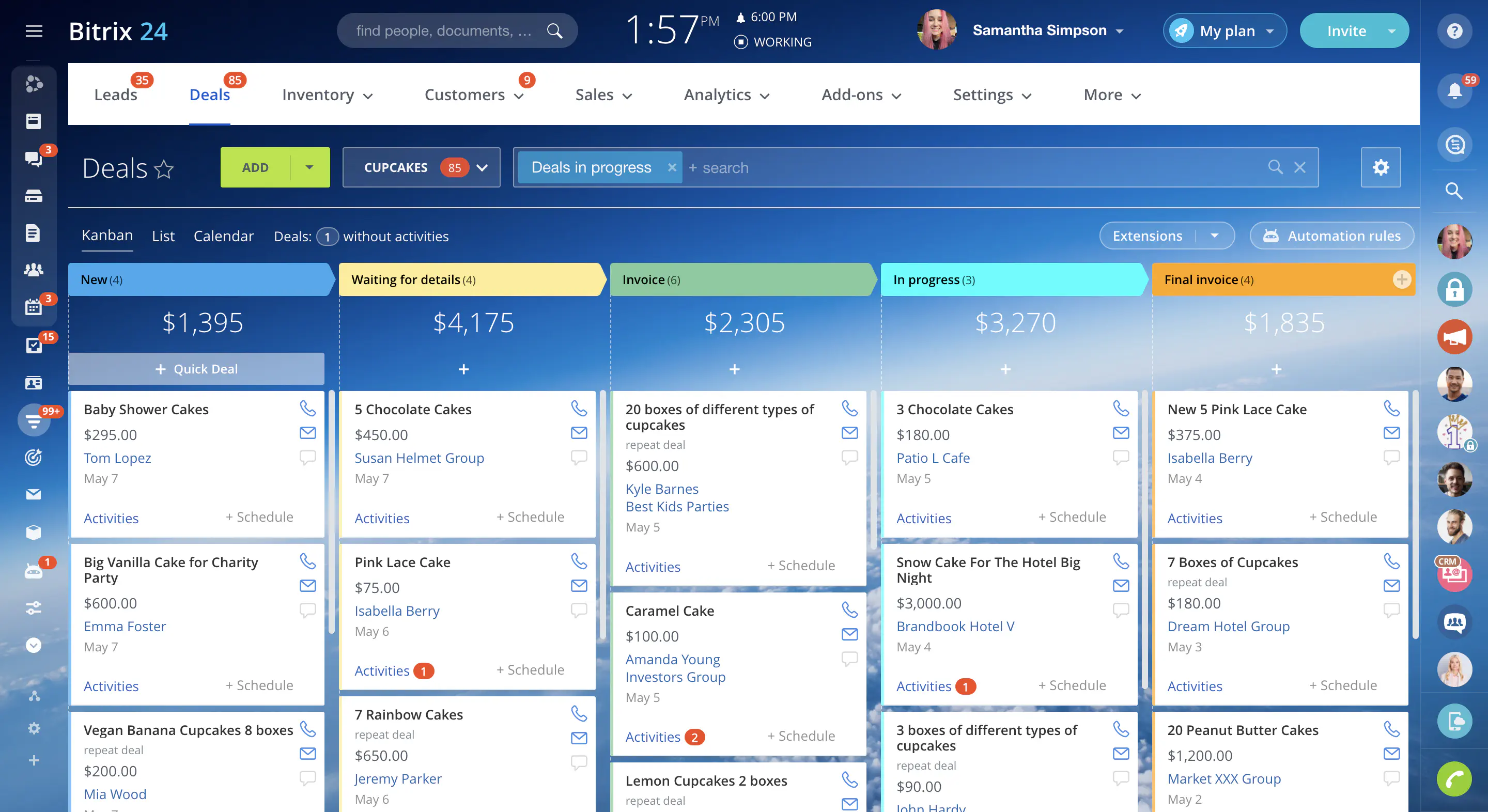
Built for: Sales teams of all sizes
Bitrix24 is a CRM software with a comprehensive sales management tool that suits sales teams with different needs. Starting with lead management, it automatically captures leads from emails, web forms, and social media and adds them to your CRM. It also gives scores to leads based on rules you set to help you with lead qualification.
Bitrix24 lets you customize a sales pipeline with stages that suit your line of business. You can view it as a Kanban board or list, either way, one look at it will help you know where each lead is in the pipeline. Better yet, if you have a multi-stage sales process, you can build multiple pipelines and connect them via a sales tunnel.
The CRM tool also has a few automation tricks to make your team’s life easier. It allows the automation of sending reminders and notifications and moving deals through the pipeline based on specific triggers.
Despite the convenient features, many users have reported that Bitrix 24 has a cluttered dashboard that takes time to get used to.
Pros:
- Multiple sales pipelines
- Automated reminders and notifications
- Lead scoring system
- Automatic lead qualification through the sales pipeline
Cons:
- Cluttered dashboard
7. Insightly
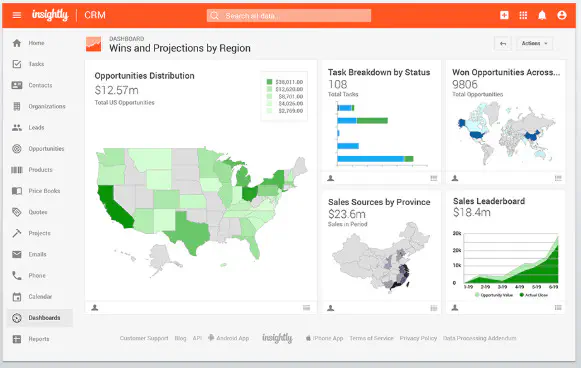
Built for: Sales teams of all sizes
Insightly is a cloud-based CRM and pipeline management tool that makes it easy for sales teams to collaborate and work from anywhere. It offers mobile access so that you can check on the sales processes when out of the office, and it has quick-loading screens for extreme convenience.
Insightly helps you build sales pipelines and distribute leads automatically among your team members based on the criteria you set. It also captures leads from social media, email campaigns, and website forms and sends you their contact information, demographics, and interactions.
While the sales pipelines are customizable to help you with your specific needs, customization is a bit of a challenge on Insightly and can take you a long time.
After closing deals, Insightly allows you to create projects for your new customers where you can find information related to their progress ever since they were an opportunity. On top of that, the CRM tool integrates with multiple convenient tools that can help you improve your workflow, like Gmail, Calendly, Shopify, and more.
Pros:
- Automatic lead distribution
- Centralized customer data and conversations
- Deep integrations
- Mobile access
Cons:
- Customization is time-consuming and challenging
Conclusion
As you’ve seen, there’s no shortage of competent sales management tools on the market. It all boils down to the size of your team, the communication channels and CRMs you use, and the features you’re looking for.
Making the right choice will help you improve your sales workflows and communication efforts, Plus, your team will be able to focus on closing deals rather than carrying out redundant tasks.
If you’re curious about how Rasayel can help your sales team, book a demo call with our team to learn more!
Frequently Asked Questions

Hania is a seasoned researcher and content writer specializing in WhatsApp Business and its role in B2B sales and customer engagement. With years of experience creating in-depth, thought-provoking content, she combines real-life use cases and deep industry insights to help businesses leverage WhatsApp as a growth tool. Her expertise lies in translating complex research into actionable strategies, making her a trusted resource for companies looking to innovate their communication and sales processes.

